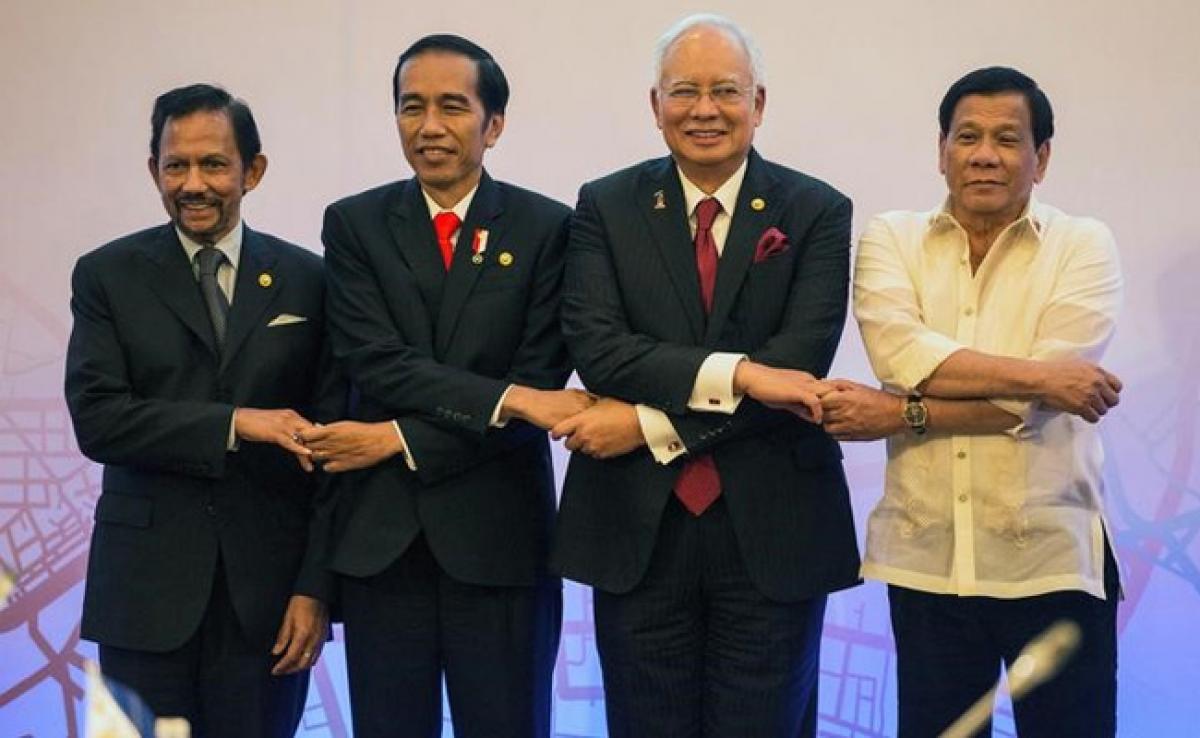Live
- ‘Get Set, Grow Summit 2024’ Focuses on Digital Detox for Families
- Stokes motivates his team to put in extra effort, says England pacer Potts
- From overcoming setbacks to leading India in U19 Women’s Asia Cup, Niki Prasad's amazing journey
- Driving Enterprise Security: Inside Venkata Reddy Thummala’s Leadership Journey
- Constitution debate: PM Modi hails 'Nari Shakti'; makes strong pitch for 'United Bharat’
- Abhijeet Bhardwaj: Revolutionizing Enterprise Analytics with Innovation and Expertise
- Bihar: Inquiry initiated against principal who went to buy veggies during school hours
- Press Sri Lankan Prez for release of Indian fishermen: TN Cong MP to EAM Jaishankar
- TN: DMK postpones executive meet due to heavy rains & Parliament session
- Porous silicon oxide electrodes can fix durability issues in batteries: Researchers
Just In

Southeast Asian leaders took a softer stance on disputes in the South China Sea during a summit that ended on Saturday, avoiding tacit references to China\'s building and arming of its manmade islands, according to the chairman\'s statement.
Southeast Asian leaders took a softer stance on disputes in the South China Sea during a summit that ended on Saturday, avoiding tacit references to China's building and arming of its manmade islands, according to the chairman's statement.
A final statement of the Association of South East Asian Nations (ASEAN), which was not made available until Sunday, dropped the references to 'land reclamation and militarization' included in the text issued at last year's meeting in Laos and an earlier, unpublished version seen by Reuters on Saturday.
The outcome follows what two ASEAN diplomats said were efforts by Chinese foreign ministry and embassy officials in Manila to pressure ASEAN chair the Philippines to keep Beijing's contentious activities in the strategic waterway off ASEAN's official agenda.
It also indicates four ASEAN members who the diplomats said had wanted a firmer position had agreed to the more conciliatory tone in the statement.
China is not a member of ASEAN and was not attending the summit but is extremely sensitive about the content of its statements and considers it a barometer of the bloc's dissent over its artificial islands in disputed waters.
China's embassy in Manila could not be reached and its foreign ministry did not respond to request for comment on Saturday.
The ASEAN statement also noted 'the improving cooperation between ASEAN and China', and did not include references to 'tensions' or 'escalation of activities' seen in earlier drafts and in last year's text. It noted some leaders' concerns about 'recent developments'.
Beijing has reacted angrily to members expressing their concern about its rapid reclamation of reefs in the Spratly archipelago and its installation of missile systems on them.
According to some experts, China is now capable of deploying combat aircraft on several of its manmade features.
Pointless To Pressure
The softened statement comes as the current ASEAN chairman, Philippine President Rodrigo Duterte, seeks to bury the hatchet with China after years of wrangling over its maritime assertiveness, including its four-year blockade of the Scarborough Shoal.
Beijing has quietly eased that, in response to Duterte's request to allow Filipinos to fish there again.
Duterte set the tone for the meeting on Thursday when he told reporters it would be pointless discussing China's maritime activities, because no one dared to pressure Beijing anyway.
An ASEAN diplomat on Sunday said the statement was a genuine representation of the atmosphere of the Manila meetings.
"We respected the Philippines' views and cooperated with the Philippines as this year's chair," the diplomat said.
"It clearly reflected how the issue was discussed".
Duterte's foreign policy approach represents a stunning reversal of that of the previous administration, which had close ties with the United States and was seen by China as a nuisance.
The Philippines government in 2013 challenged Beijing by lodging a case with the Permanent Court of Arbitration in 2013.
Two weeks into Duterte's presidency last year, the Hague court ruled in favour of the Philippines, angering China. But Duterte has made it clear he would not press Beijing to comply anytime soon, and is more interested in doing business than sparring.
The chairman's statement issued on Sunday made no mention to the arbitration case.
However, it did include in a section separate to the South China Sea chapter the need to show "full respect for legal and diplomatic processes" in resolving disputes.
Underlining Beijing's sensitivity about the arbitration case, the two diplomatic sources who spoke to Reuters on Saturday said Chinese embassy officials had lobbied behind the scenes for that sentence to be dropped, and saw it as a veiled reference to the ruling.

© 2024 Hyderabad Media House Limited/The Hans India. All rights reserved. Powered by hocalwire.com







